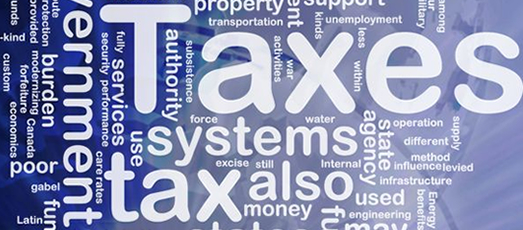The NON-REGULAR RESIDENTS – RNH – Tax program
- Who may request the registration as a non-regular resident?
The non-regular resident tax regime is available for citizens, aged 18 or over, meeting the following conditions:
- To be deemed resident, for tax purposes, in the Portuguese territory, according to any of the following criteria (article 16, nº 1, of Code of Income Tax):
- To have remained there for more than 183 days, consecutive or with interruptions, in any 12-month period beginning or ending in the year concerned;
- When remaining for less time there, to have a house in such conditions that it is implied the current intention to maintain it and occupy it as a habitual residence;
- To be a member of a ship’s crew or of an aircraft, on 31st December, provided that the employers are entities with actual residence, headquarters or effective direction in that territory;
- To carry out, abroad, functions or commissions of a public nature, serving the Portuguese State.
- Not to have been considered resident in the Portuguese territory in any of the five years preceding the year in which you intend to register yourself as a non-regular resident.
- When do you have to request the registration as a non-regular resident?
The request of registration as a non-regular resident must be submitted only after the registration as a resident in the Portuguese territory.
Therefore, if you have already a Portuguese Tax Identification Number (NIF) but you are still registered as a non-resident, you must request, previously, the change of address, to achieve the resident status, in any local tax office or citizen service centre.
Deadline: The registration request, as a non-regular resident, must be done until March 31st, inclusive, of the year following the one in which he became a resident in the Portuguese territory.
- What should you do to register yourself as a non-regular resident on “Portal das Finanças”?
After being registered as a resident in the Portuguese Territory, you must request a password on “Portal das Finanças”, (www.portaldasfinancas.gov.pt), on the option “Registar-se” and fill the online application form with the requested data.
After receiving the password, at your address, you can submit the registration request, on “Portal das Finanças”. Follow this steps: Cidadãos > Serviços > Dados Cadastrais > Residente Não Habitual > Entregar Pedido de Inscrição.
In the due page, you must fill in the fields with the year of registration pretended, as well as the foreign residence country (the country where you lived in the previous year) and declare that you fulfil the conditions to be considered a non-resident in the Portuguese Territory in the five years prior to the year of beginning of the non-regular resident status.
- Is it possible to consult the situation of the registration request as a non-regular resident?
Yes. If the registration request was submitted on “Portal das Finanças”, you are able to consult the situation of the request, 48 hours after its submission, on the link: Cidadãos > Serviços > Dados Cadastrais > Residente Não Habitual > Consultar Pedido de Inscrição.
- How do you know if the application for registration as non-regular resident, submitted on Portal das Finanças, has been accepted or rejected by Autoridade Tributária e Aduaneira?
If your application, submitted on Portal das Finanças, has been accepted, you will be able to obtain the corresponding proof, in PDF format, on Cidadãos > Serviços > Dados Cadastrais > Residente Não Habitual > Consultar Pedido de Inscrição.
After your application has been accepted and if you carry out one or more high added-value activity, provided for in Ordinance No. 12/2010, of 7th January, must send to the Taxpayer Registration Services Directorate (DSRC), located at Av. João XXI, nº 76, 6º, 1049 – 065 Lisboa, the original or certified copy document proving the activity performed, as a declaration issued by the employer, employment contract or, in the case of activity “Senior Company Board”, power of attorney stating that the applicant has management and binding powers of the legal person, in accordance with Circular No. 7/2010, of the DSIRS. The high added-value activity code will be registered by DSRC, after confirmation of the respective exercise, being available for consultation on the Finance Portal, under the Current Registration Status.
If your application has been rejected, you will be notified by Autoridade Tributária e Aduaneira (AT) of the draft decision of rejection. The notification states the grounds for the decision, which, if you want, you can contest, by presenting your allegations as well as any supporting documents.
- In situations where the citizen has previously requested registration, through application, you will be notified by AT of the acceptance
or rejection of the application.
- What declaration must the citizen submit when applying for registration as non-regular resident?
When applying for registration as a non-habitual resident, you must submit a declaration (only required for those who do not order electronically) how the necessary requirements to be considered were not met resident in Portuguese territory, in any of the five years preceding that period where you want tax to start as a non-habitual resident.
- What is the right of a citizen who is considered a non-habitual resident?
Citizens who are considered non-habitual residents acquire the right to be taxed as such for a period of 10 consecutive years starting from the year of registration as a resident in Portuguese territory (inclusive), provided that in each of those 10 years is considered a resident there.
This 10-year period is non-extendable. It is underlined that the enjoyment of the right to be taxed as a non-habitual resident, in each year of the period, depends on being, in that year, considered resident in Portuguese territory.
In cases where the citizen has not enjoyed the right to be taxed according to the tax regime established for non-habitual residents in one or more years of that 10-year period, can resume the enjoyment of the same right in any of the remaining years of that period, provided that it is again considered resident for IRS purposes.
- Which activities have a high added value, with a scientific character, artistic or technical, which are relevant to the tax regime of non-habitual residents?
Pursuant to Ordinance No. 12/2010, of January 7th, amended by Ordinance No. 230/2019, of July 23rd, the activities are as follows:
I – Professional activities:
112 – Managing director and executive manager of companies;
12 – Directors of administrative and commercial services;
13 – Directors of production and specialized services;
14 – Directors of hotels, restaurants, commerce and other services;
21 – Specialists in physical sciences, mathematics, engineering and related techniques;
221 – Doctors;
2261 – Dentists and stomatologists;
231 – Teachers of university and higher education;
25 – Specialists in information and communication technologies (ICT);
264 – Authors, journalists, and linguists;
265 – Creative and performing arts artists;
31 – Intermediate level science and engineering technicians and professions;
35 – Information and communication technology technicians;
61 – Farmers and skilled workers in agriculture and animal production, oriented to the market;
62 – Skilled workers in the forest, fishing, and hunting, oriented to the market;
7 – Skilled workers in industry, construction, and craftsmen, including skilled workers in metallurgy, metalworking, food processing, wood, clothing, crafts, printing, manufacturing precision instruments, jewellers, artisans, workers in electricity and electronics;
8 – Plant and machine operators and assembly workers, namely fixed plant, and machine operators.
Workers in the professional activities must have at least level 4 of qualification in the European Qualifications Framework or level 35 of the International Standard Classification of Education or have five years of duly proven professional experience.
II – Other professional activities:
Administrators and managers of companies promoting productive investment, provided they are assigned to eligible projects and with contracts for the granting of tax benefits signed under the Investment Tax Code, approved by Decree-Law No. 162/2014, of October 31st.
- How non-regular resident income from Portuguese sources will be taxed?
Income from categories A and B, earned on activities with high added value, with a scientific, artistic, or technical character by non-habitual residents in Portuguese territory are taxed at the rate of 20%.
Moreover, a non-regular resident will be taxed at the rate of 10% in net pension income, including those in the Category H, income from pre-retirement or reserve situations (with or without working), amounts spent by the employer on life insurance and operations, contributions to pension funds, retirement savings funds or any supplemental social security schemes.
- How non-regular resident income from foreign sources will be taxed?
To non-habitual residents who obtain income abroad from Category A, the exemption method will apply if one of the following conditions is met:
- Are taxed in the other Contracting State, in accordance with a convention to eliminate double taxation entered between Portugal and that State, OR
- Are taxed in the other country, territory, or region, in cases where there is no convention for eliminate double taxation celebrated by Portugal.
To non-habitual residents in Portuguese territory who obtain, abroad, income from category B, earned in activities of provision of services with high added value, with scientific, artistic, or technical character, or arising from intellectual or industrial property, or from the provision of information regarding an experience acquired in the industrial, commercial, or scientific sector, as well as categories E, F and G, the exemption method applies, conditions provided for in the following points:
- Are taxed in the other Contracting State, in accordance with a convention to eliminate double taxation entered between Portugal and that State;
- Can be taxed in the other country, territory, or region, in accordance with the model convention OECD income and wealth tax system, interpreted in accordance with the observations and reservations formulated by Portugal, in cases where there is no convention to eliminate double taxation celebrated by Portugal.
PMCG Advogados
May 2020





